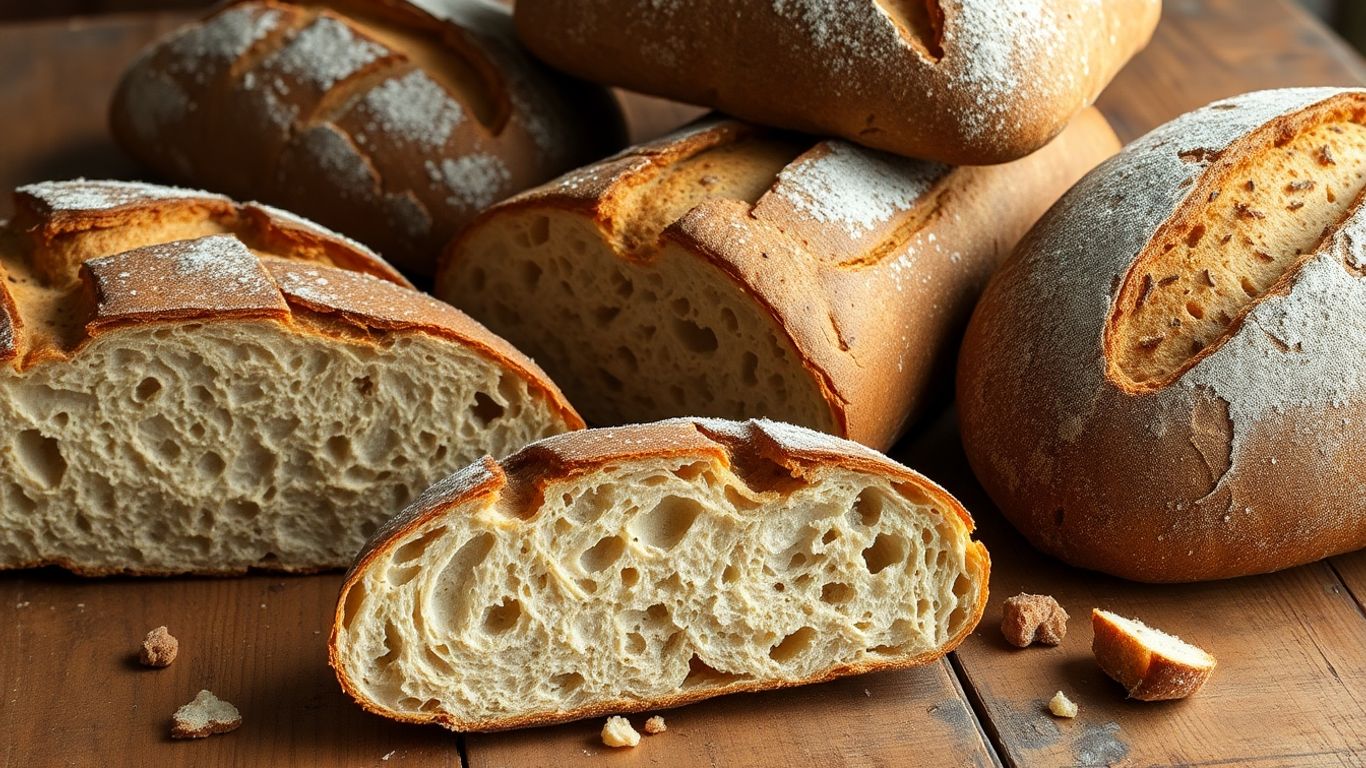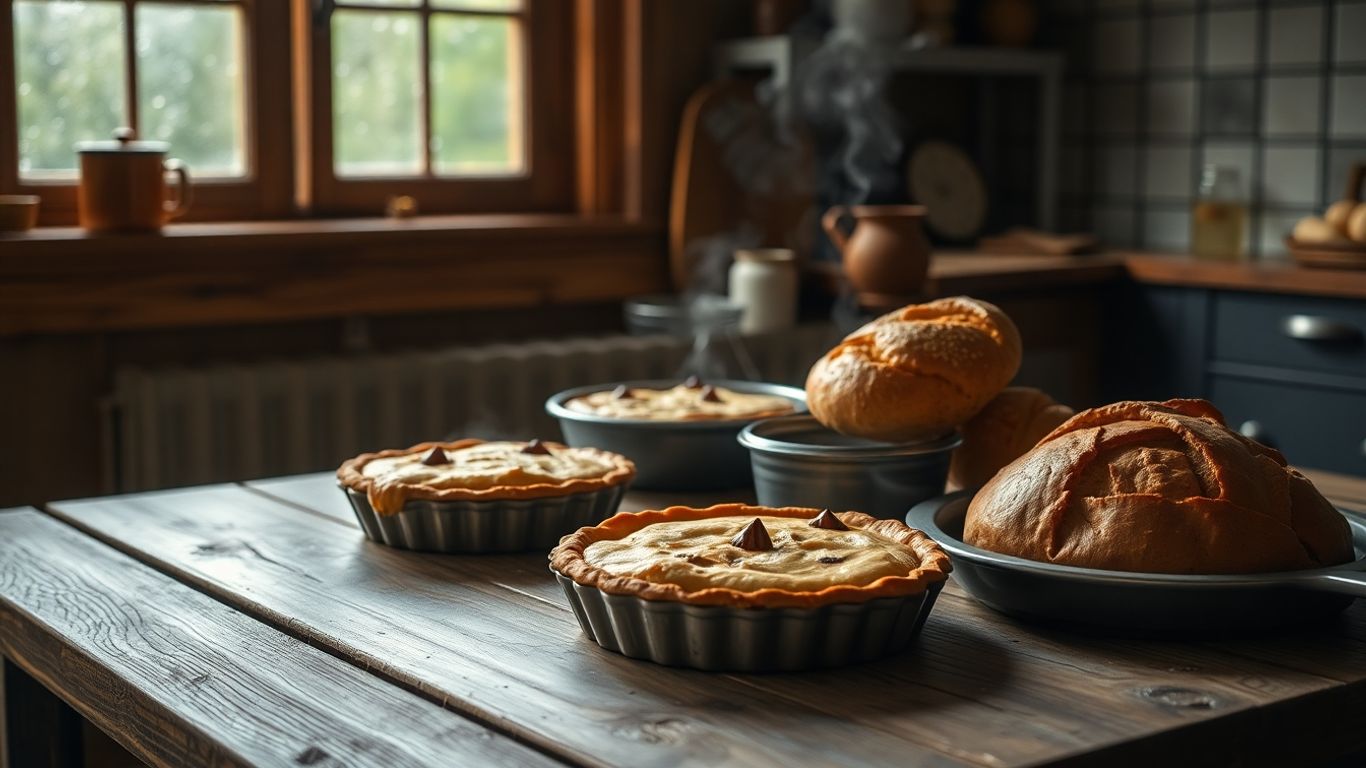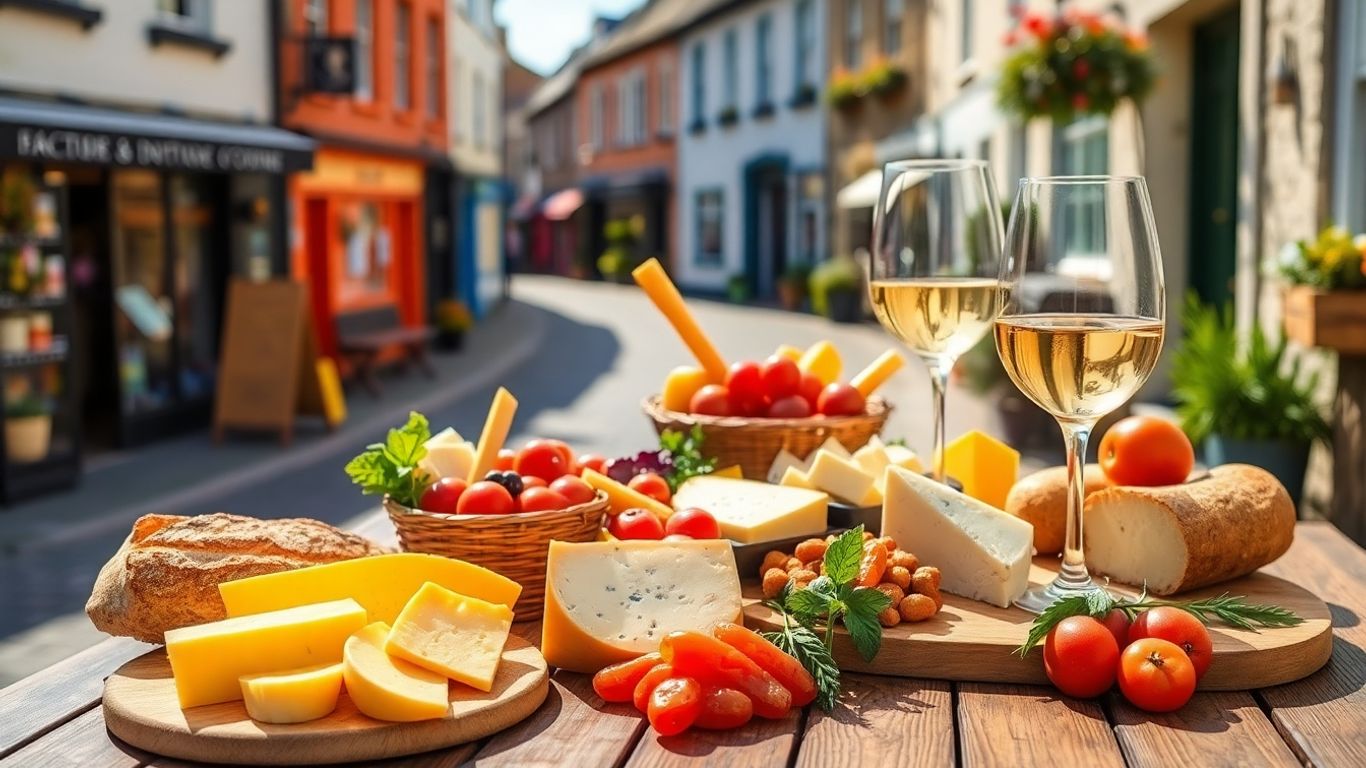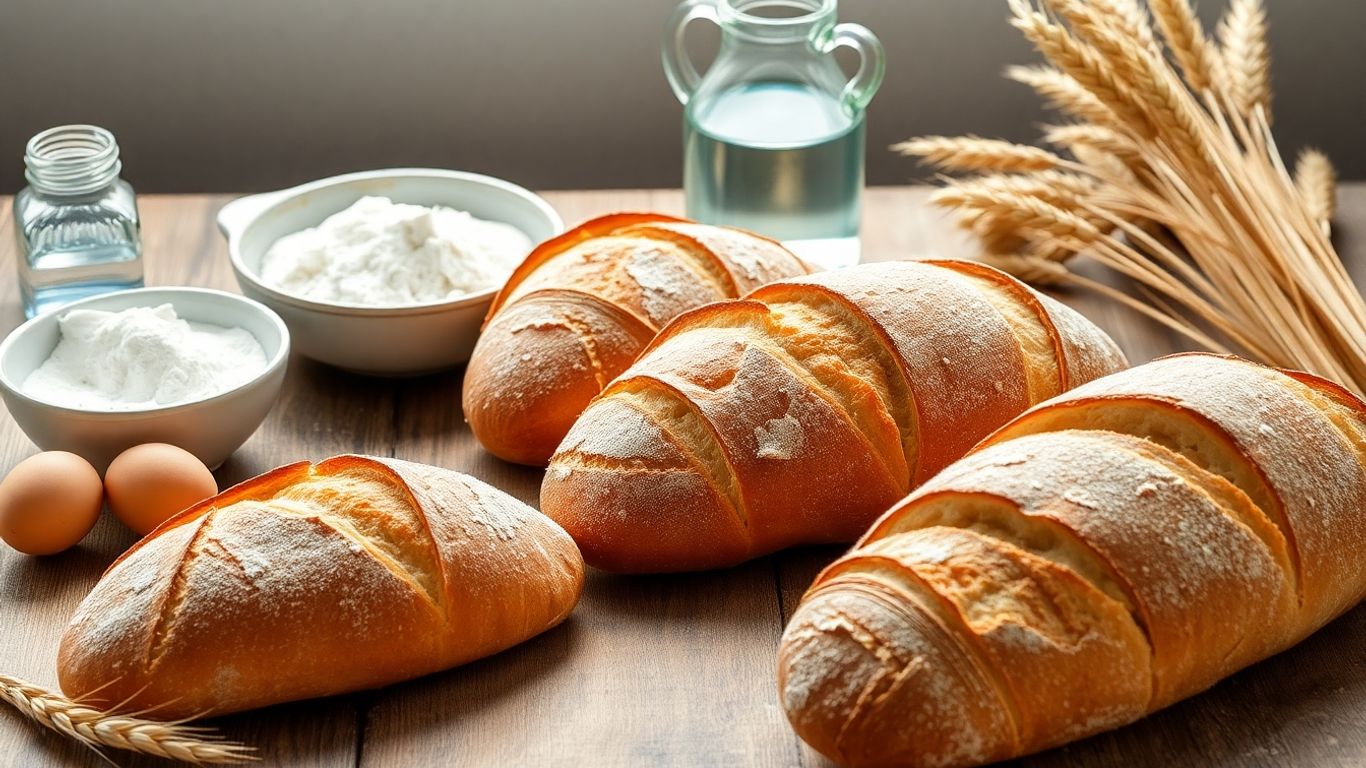Ever wondered what goes into your loaf of bread? Lately, I’ve been getting into the world of local flour Devon, and honestly, it’s eye-opening. It’s not just about baking – it’s about where the grain comes from, who grows it, how it’s milled, and how all those steps make for better bread and a stronger community. Let’s have a look at why picking up a bag of local flour Devon might just make your next sandwich taste even better.
Key Takeaways
- Choosing local flour Devon helps small farmers, millers, and bakers work together, keeping food networks strong and money in the area.
- Stoneground and heritage grains in local flour Devon make bread taste better and can be more nutritious than standard supermarket options.
- Buying local flour Devon supports wildlife-friendly farming and encourages better practices for the land and community.
Supporting a Sustainable Food System with Local Flour Devon

Sometimes, we take for granted just how much goes on before a slice of bread even hits our plate. Local flour in Devon is about more than just baking – it’s a real shift towards something fairer and more connected for everyone involved in the process.
Building Connections Between Growers, Millers and Bakers
Building a sustainable food system starts with good relationships. In Devon, there’s a real sense of teamwork, with growers, millers, and bakers getting to know each other properly rather than working through a faceless supply chain. Instead of sending grain off to some big anonymous company, farmers are linking up with millers right here, who then work closely with local bakeries like artisan bakeries in Totnes.
Here’s what makes these local connections strong:
- Grain can be traced from field to loaf – you know where your bread comes from
- Price reflects the true cost of small-scale, thoughtful production
- Collaboration means fresher flour and better bread, hands down
A local mill really is the missing piece, turning harvested grain into something bakers can use without leaving the county. Having this in the mix keeps things nimble and responsive, especially if global markets get shaky. It also means the money circulates locally, which just feels better than it drifting away.
Reviving Local Food Networks and Community Resilience
Back in the day, nearly every town had its own baker and miller. It wasn’t just practical – it meant more resilient communities that understood the value of what they were eating. Rebuilding these food networks around local flour helps us dodge some pitfalls of modern food production. It’s personal and less risky than relying on international supply chains that can be disrupted in an instant.
Here are a few ways local flour brings folks together:
- Supporting biodiversity, since farmers aren’t forced to grow just one type of wheat
- Keeping skills and traditions alive, rather than letting them fade out
- Encouraging more people to ask questions about what’s in their bread
When you buy bread made with Devon-milled flour, you aren’t just getting a better loaf – you’re also becoming part of a community that cares about what goes into its food and where it comes from.
There’s something to be said for knowing the story behind the slice on your breakfast plate. In Devon, bringing together growers, millers and bakers isn’t just nostalgia — it’s a smart, solid step towards a fairer, tastier, more sustainable food future for all of us.
Distinctive Flavour and Nutrition in Local Flour Devon

You can really taste the care and uniqueness that goes into local Devon flour. Compared to supermarket bags of the standard stuff, there’s just a depth. The sort of flavour that actually makes you stop and notice your toast, not just wolf it down. And it’s not just about taste—local flour brings a wholesomeness that’s hard to ignore.
Stoneground Milling Makes a Difference
When you buy Devon flour that’s stoneground, you get something closer to the real grain, not a stripped-down version of it. Here’s what sets it apart:
- Milling with traditional stones keeps the temperature low, which holds onto vitamins and natural oils.
- Nothing is taken out or put back in, so fibre, flavour and nutrients all stay locked inside the flour.
- Industrial flours lose almost everything—no wonder they have to add artificial vitamins back!
| Milling Method | Nutrients Retained | Flavour |
|---|---|---|
| Stoneground | Most | Nutty, complex |
| Roller-milled | Few | Bland, neutral |
When you eat bread from local, freshly stoneground flour, you notice you feel fuller from just a slice or two. That says a lot about what’s inside.
Heritage and Population Wheat Varieties Enhance Taste
Ever heard of Squareheads Master, YQ, or Mulika? These are just a handful of wheat varieties being grown around Devon right now. The big difference? They haven’t been bred just for massive yields—they bring real character to your baking.
- Heritage wheats have a softer protein, making them great for pastry and rustic loaves.
- Population wheat is a proper mix—imagine one field with over 190 types growing together. That makes for unexpected, lively flavours in your bread.
- Local varieties tend to adapt to the Devon soil and weather, giving a taste you just can’t copy elsewhere.
The upshot: Local flour isn’t samey. One bag might give you a slightly different loaf from the last, but that’s half the fun—each bake has its own story. If you’re after bread that makes you want another bite, local Devon flour should be on your list.
Boosting the Devon Economy and Local Biodiversity Through Local Flour
Keeping Value Within the Community
Buying local flour isn’t just about good baking; it’s a lifeline for Devon’s economy. When you grab a bag from the farm shop or weekly market, the money stays right here – supporting small growers, bakers, and millers. There’s none of that cash being swallowed up by faraway multinationals. It’s a simple way to keep neighbours in business and preserve local jobs.
Here’s a quick look at how local flour stacks up compared with industrial options:
| Local Devon Flour | Industrial Flour | |
|---|---|---|
| Money stays in Devon | Yes | No |
| Supports small farms | Yes | Rarely |
| Transparency | High | Low |
| Environmental impact | Low | High |
You’ll also notice more transparency along the way. Buying locally means you can have an actual chat with the person who baked your bread or milled your flour – not some nameless factory line.
- Supports jobs in farming, milling, and baking
- Keeps profits local rather than overseas
- Builds relationships across the county
- Reduces the environmental cost of transport
I’ve seen first-hand how a few passionate people can help a whole community spring up around fresh, real food. Made me rethink what “local” really means!
Encouraging Regenerative and Agroecological Practices
One surprising thing about local flour is how it helps the land as much as our wallets. Many Devon growers are now switching seeds, opting for heritage grains and mixed wheat types that need fewer chemical sprays. This isn’t just a nod to tradition – it helps the soil and brings back wildlife that’s been missing for years.
The changes are adding up:
- More diversity in the fields, attracting birds and insects.
- Lower need for fertilisers and pesticides with hardier wheat varieties.
- Using cropping methods that fix soil, not exhaust it.
It’s true – a loaf of bread made from Devon flour might taste a bit different every year, depending on what the farmer planted or how much rain we had. But it’ll also have a story packed inside, one that’s shaped by the people and the countryside around us.
So next time you pick up a sack of flour from down the road, remember: you’re not just buying an ingredient. You’re building a better future for Devon’s economy and its natural beauty, one loaf at a time.
Choosing flour made locally right here in Devon helps both our economy and wildlife. When you buy from local farmers and bakers, you support small businesses and protect the beautiful nature around us. Ready to make a difference with your next loaf? Visit our website and see how easy it is to switch to Devon-made flour.
Wrapping Up: Why Local Devon Flour Matters
So, after all that, it’s pretty clear there’s a lot more to flour than just what’s in the bag at the supermarket. Choosing local Devon flour isn’t just about making a tastier loaf (though that’s a big win). It’s about knowing where your food comes from, supporting people in your community, and maybe even helping the planet a bit. The folks growing, milling, and baking in Devon are bringing back old ways that make sense – for flavour, for nutrition, and for the land. Next time you’re picking up flour, maybe give the local stuff a go. Who knows, your toast might just taste better for it.
Frequently Asked Questions
Why is local Devon flour better for the environment?
Local Devon flour is better for the environment because it doesn’t have to travel far to get to your bakery or home. This means less fuel is used for transport, which helps lower pollution. Also, many local farmers use eco-friendly ways to grow their wheat, like crop rotation and not using lots of chemicals. This keeps the soil healthy and supports wildlife.
What makes stoneground flour different from regular flour?
Stoneground flour is made using special stones that gently grind the wheat at a cool temperature. This helps keep more of the good stuff in the flour, like fibre and vitamins, which can be lost in big industrial mills that use metal rollers and high heat. Stoneground flour also gives bread a richer flavour and a nice texture.
Does local flour taste different from supermarket flour?
Yes, local flour often tastes better! Because it’s usually fresher and made from special types of wheat, like heritage or population varieties, it has more flavour. Many people say bread made from local flour tastes nuttier and more interesting than bread from supermarket flour, which can be bland because it’s all mixed together from big factories.







